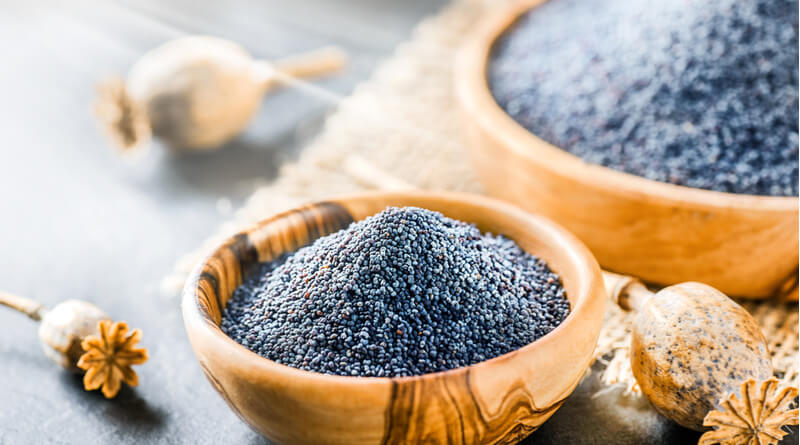Consider the scenario: You are in a rush for work, so you pick up a poppy seed covered scone on your way to work. That day your company is issuing a routine drug test which you take without a second thought. A week later your test comes back positive for opiates. This is the story that people warn you about when consuming poppy seeds. This is worrisome because poppy seeds have some great natural health benefits that make them perfectly good for including in your diet. Read on to learn how to include poppy seeds in your diet and not have it interrupt your life.
What you need to know about poppy seeds and opiates
First, let’s establish that the amount of poppy seeds you are likely to find on a bagel or muffin is definitely enough to trigger a positive reading for morphine. This is not because poppy seeds have opium themselves. Poppy seeds are extracted from the seed pods of opium plants. The seeds can sometimes get contaminated with opium milk thanks to this biological setup. The opium milk contains morphine.
Typically, poppy seeds are cleaned before distribution in an attempt to remove the opium milk, but it is not too difficult for the seeds to contain traces of opiate residue. You won’t feel any actual effects from morphine, but you will be able to trigger a response on a drug test.
The amount of morphine you ingest from consuming poppy seeds should be filtered from your bloodstream in a few hours to 48 hours. Just try to plan accordingly when scheduling a drug test. If it is a random test, check that it actually asks if you’ve eaten poppy seeds. If it doesn’t bring it up with your supervisor as any good drug test should ask this question.








